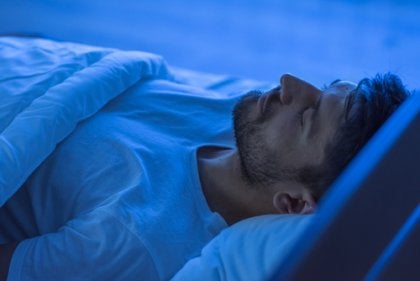Sleep Hygiene: Learning How to Sleep Well

Sleep is a fundamental part of your physical and emotional health. Although it seems like getting a good night’s sleep should come naturally, for so many people that isn’t the case. If you have a lot of tension and stress during the day and your mind races when you lay down to go to sleep, your routine is thrown off and you just can’t unwind, it’s time to develop good sleep hygiene and learn to sleep well.
Sleep hygiene is the set of habits that facilitate falling asleep and make it possible to rest and disconnect your body and mind. This allows you to recover your strength and have an active and alert mind during the day.

What are the benefits of sleeping well?
- Improved cognitive function. When the brain rests, your memory consolidates what you learned during the day. It also helps you be more creative and stay focused while you’re awake.
- Weight loss. When you don’t sleep enough, your adipocytes release less leptin, the hormone responsible for appetite suppression. Sleeping more can increase your BMI by 0.2 points, but lack of sleep can increase it by as much as 1.4 points. Thus, not getting enough sleep means a higher risk of being overweight or obese.
- Physical health. When you sleep well, your immune system gets a chance to regenerate and be ready to fight against infection and illness. Heart problems are much less common for people with good sleep hygiene.
- Emotional and mental health. Sleep is related to serotonin and dopamine release. Those two chemicals counteract the release of cortisol, which decreases symptoms of stress and improves depression and anxiety symptoms.
Next, we’ll show you some ways that you can learn to get a great night’s sleep every time.
Establish sleep routines
Prepare your body and your mind by letting them know it’s time to rest. Try not to do any physical exercise right before you go to sleep. Exercise activates your body and makes it harder to fall asleep. You should also avoid drinks that contain caffeine.
Your routine can be something very simple, as long as it involves calm activities. Reading before bed is great, as is listening to peaceful music or doing some kind of relaxation exercises. Sleeping six to eight hours is ideal. According to a study published in Sleep magazine, researchers estimate that reducing your hours of nighttime sleep can increase your risk of premature death by as much as 12%.
Choose a set bedtime
Try to go to bed and wake up at the same time every day. Avoiding taking naps close to bedtime. Napping for 15-30 minutes after lunch is enough to help you feel refreshed and ready to face the rest of the day. It’s hard to establish these kinds of routines, but feeling tired at bedtime is crucial to falling asleep easily.
Only use your bed for sleeping
Try not to use your bed for any other activities (sex is the obvious exception). This helps your body and mind associate your bed with sleep. If you lay there for a few minutes and you can’t fall asleep, leave your room and go do some other quiet activity like reading or sitting in silence. Once you feel sleepy again, head back to your room.
If you tend to use your bed to study, watch TV, or eat, then you won’t associate it exclusively with sleeping. That will make it much harder to fall asleep when the time comes.

Eat a healthy diet
Eating a lot right before bed or consuming a lot of caffeine can also make it hard to sleep well. Having good sleep hygiene involves good eating habits that help establish routines for your body. Another recommendation is to eat at least two hours before going to bed so none of your organs are working too hard when you finally lay down to sleep.
Your sleep environment is also very important. There shouldn’t be a lot of light and the temperature should be pleasant. Your bed needs to be comfortable, and the color and ambiance of the room should invite peace and rest.
If you practice good sleep hygiene by incorporating these suggestions into your routine, you’ll sleep better at night and function better when you’re awake. What are you waiting for? Give it a try!
This text is provided for informational purposes only and does not replace consultation with a professional. If in doubt, consult your specialist.








